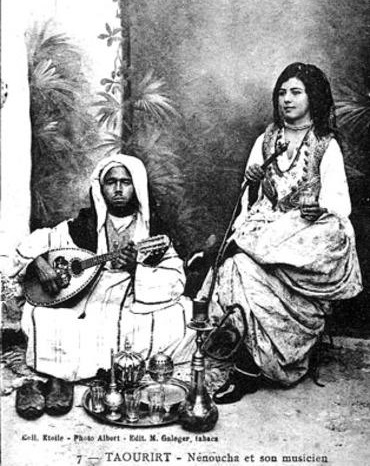12ème édition du Festival de Fès de la Culture Soufie. Du 19 au 26 Octobre 2019, sous le thème : La Culture Soufie, un humanisme spirituel pour notre temps
The Fes Festival of Sufi culture. Organised in partnership with the group Eco-Media, the new edition will be held from October 19 to 26 under the theme "Sufi culture, a spiritual humanism for our time". This association between notions of humanism and spirituality aims, according to the president of this event, Faouzi Skali, to go back in time.
"This choice may seem all the more surprising since the first term refers, in Western history since the fourteenth century (but especially since the eighteenth and nineteenth centuries), to a movement of thought whose purpose was to emancipate itself from transcendent orders of religion and the sacred, "he says. This movement was part of its own way in an already old debate, in West as in East, between faith and reason, religion and politics, freedom and transcendence. "But the philosophical responses that emerge at one time or another from such a debate are never innocent, they carry a promise of civilization, a choice of society," adds the festival's president. The latter promises a high quality edition. It invites international experts to the debates of Bouinania and renowned artists for creative frescoes and Sufi shows. Among them are Françoise Atlan, Marouane Hajji and various spiritual groups (Tariqas) from Morocco and elsewhere.
 |
| Faouzi Skali |
Le Festival de Fès de la Culture Soufie a choisi cette année d'associer les notions d'humanisme et de spiritualité. Ce choix peut paraître d'autant plus étonnant que le premier terme renvoie, dans l'histoire occidentale depuis le XIVème siècle (mais surtout depuis le XVIII et XIXème siècle) à un mouvement de pensée dont le but était de s'émanciper des ordres transcendants de la religion et du sacré .
Jour 1 : Samedi 19 Octobre 2019
16h00 : Conférence et Cérémonie d’Ouverture Officielle du Festival – La Salle de la Préfecture, Fès - Médina
21h00 : Création artistique Al shushtari Prince des troubadours - Première Mondiale - Françoise Atlan (chant, France - Maroc), Curro Piñana (chant flamenco, Espagne), Marouane Hajji (Chant, Maroc), Ensemble Al Shushtari dirigé par Mostafa Amri (musique soufie, Maroc) - Sous la direction artistique de Carole Latifa Ameer – Bab al Makina
Jour 2 : Dimanche 20 Octobre 2019
Jour 3 : Lundi 21 Octobre 2019
9h30 – 12h30 : Table ronde « Faire revivre l'Esprit de Fès par la culture soufie » - Medersa Bouananiya
17h30- 19h30 : Table ronde « Enjeux sociétaux et spirituels face au transhumanisme » - Medersa Bouananiya
21h00 : Tariqa Sharqawiya – Parc Jnan Sbil
Jour 4 : Mardi 22 Octobre 2019
9h30 – 12h30 : Table ronde: « Pratique de la non-violence au quotidien » - Medersa Bouananiya
17h30- 19h30 : Visite spirituelle de Fès: « Le Soufisme, un art de vivre » dans des lieux historiques et spirituels de Fès (Palais, Riads et Jardins privés).
(Parallèlement du festival et sur inscription )
Conférence, FFCS 2017
21h00: Tariqa Rissouniya – Parc Jnan Sbil
Tariqa Sharqawiya, FFCS 2017
Jour 5 : Mercredi 23 Octobre 2019
9h30 – 12h30: Table ronde: "Religions et Droits humains" - Medersa Bouananiya
19h-22h : Vernissage, exposition : Sami-Ali, rencontre-signature avec l’artiste puis
Récital de poésie soufie et de musique – Lieu à déterminer
Conférence, FFCS 2017
Jour 6 : Jeudi 24 Octobre 2019
9h30 – 12h30: Table ronde : « ‘Al bahr al madîd ’, l'interprétation spirituelle du Coran selon Ibn ' Ajiba » - Medersa Bouananiya
17h30- 19h30 : Récital poétique et musical, Leili Anvar et Farzaneh Joorabchi, Les contes des sages perses (première mondiale) en lien avec la sortie du livre aux éditions du SEUIL - Dar Batha, Annexe Institut Français - Fès
21h00 : Tariqa Sqalliya et tariqa Halvetiya ussakiya : la khalwatiya du Maroc à la Turquie – Parc Jnan Sbil
Jour 7 : Vendredi 25 Octobre 2018
9h30 – 12h30 : Table ronde : Prier au quotidien selon les trois traditions Abrahamiques : « Prier pour quoi faire ? » - La Salle de la Préfecture, Fès -Médina
17h-17h45 : Le musc des secrets : le parfum et le désir dans la poésie persane, conférence de Leili Anvar – Lieu à déterminer
17h45-19h30 : Parfums sacrés, master classe et atelier avec le maître-parfumeur Abderezzak Benchaâbane – Lieu à déterminer
(Parallèlement du festival et sur inscription )
21h00 : Tariqa Wazzaniya – Parc Jnan Sbil
Jour 8 : Samedi 26 Octobre 2019 Création artistique pour la clôture
9h30 – 12h30 : Table ronde : Projet de création d'une plateforme de la Culture Soufie, état des lieux - Medersa Bouananiya
20h30 : Cérémonie de Clôture – création artistique : Le langage secret des fleurs et des parfums, avec Fatima-Zohra Qortobi (chant, Maroc), Farzaneh Joorabchi (chant, Iran), Ferhat Oguz Korc (chant, Turquie) et derviches tourneurs, Amal Ayouch, Leili Anvar, Théophile de Wallensbourg (comédiens). Sous la direction artistique de Carole Latifa Ameer
– Bab al Makina
Parmi les intervenants pressentis (par ordre alphabétique) :
« Mohamed Adiouane (Maroc), Mohammed Alaoui Belrhiti (Maroc), Moulay Driss Alaoui Mdaghri (Maroc), Carole Latifa Ameer (France-Inde), Leili Anvar (France), Françoise Atlan (France), Mohcine Ayouche (Maroc), Adbelilah Benarafa (Maroc), Abderezzak Benchaâbane (Maroc), Saïda Bennani (Maroc), Ikram Bennani (Maroc), Ghaleb Bencheikh (France), Théophile De Wallensbourg (France), Mounir El Kadiri Boutchich (Maroc), Al Aziz Eddebbarh (USA-Maroc), Courtney Erwyn (USA), Driss Fassi Fihri (Maroc), Jean-Pierre Flachaire (France), Éric Geoffroy (France), Mohammed Ghani (Maroc), Roderick Grierson (Canada), Abdou Hafidi (France-Maroc), Suad Hakim (Liban), Thami Harak (Maroc), Touria Iqbal (Maroc), Mohamed Kabbaj (Maroc), Jaafar Kansoussi (Maroc), Bariza Khiari (France), Nizar Liemlahi (Maroc-Espagne), Cristóbal López Romero (Espagne), Souada Maoulainine (Maroc), Naila Hayat Noon (Pakistan), Cheikha Nûr (Turquie), Abdellah Ouazzani (Maroc), Khaled Roumo (France-Syrie), Ibrahim Salama (Suisse-Egypte), Meryem Sebti (France-Maroc), Salamatou Sow (Niger), Ahmed Taoufiq (Maroc), Cherif Sidi Brahim Tidjani (Maroc), François-Xavier Tilliette (France)»
Ce programme peut être sujet à modifications
SHARE THIS!




















